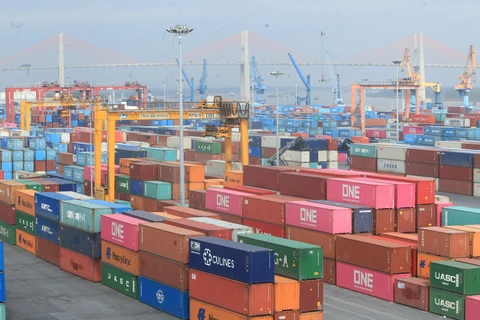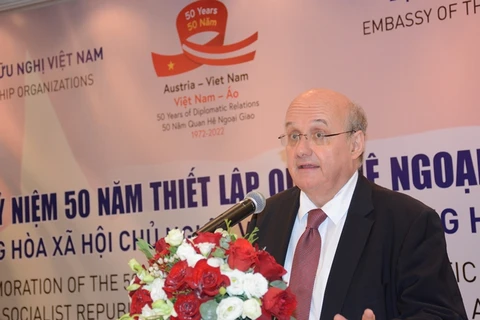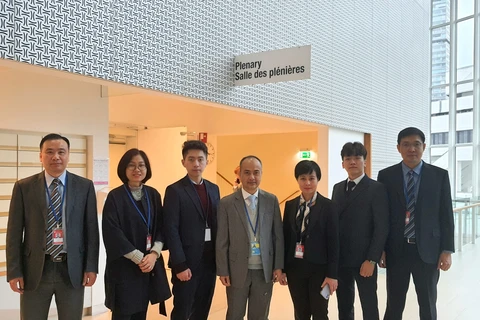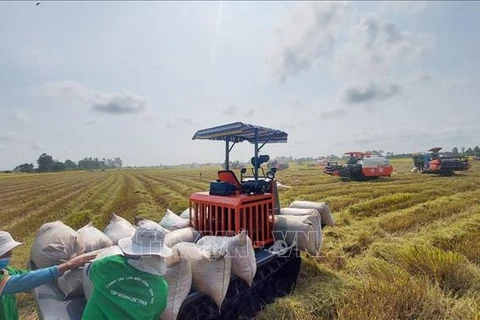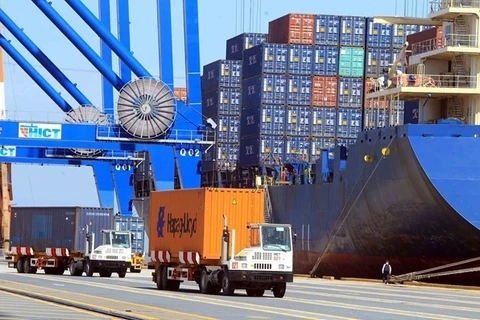Berlin (VNA) – Die Presse - a German-language daily broadsheet newspaper based in Vienna, Austria, on April 14 ran an article highlighting favourable conditions that make Vietnam more attractive to foreign investors.
The newspaper also emphasised that the official visit to Vietnam by Austrian Federal Minister for European and International Affairs Alexander Schallenberg from April 16-18 will help promote Austria's cooperation with Vietnam and the region.
According to the article, thanks to solid growth, trade agreements, and favourable investment conditions, Vietnam is increasingly attractive to foreign businesses who are looking to diversify their supply chains.
As a regional growth engine, since the beginning of this millennium, Vietnam has consistently achieved an average Gross Domestic Product (GDP) of 6.2%, one of the highest growth rates in Asia. Vietnam has also overcome the COVID-19 pandemic without a recession, even last year, it recorded growth of over 8% - the highest growth rate in more than ten years.
The article cited a report from the Pacific Basin Economic Council (PBEC), which said that Vietnam's market has recently become increasingly attractive to foreign investors as companies move their production to the country.
According to the article, export control measures and economic sanctions in the trade war, difficulties related to the supply chain as well as unpredictable consequences of the COVID-19 pandemic have forced businesses to consider diversifying the supply chain. Besides, lower production costs in Vietnam are also attractive to investors.
In particular, many foreign enterprises, including Austrian firms, have to find new markets after withdrawing from Russia due to the conflict in Ukraine. In that context, Vietnam emerged as an attractive destination for investors.
According to Dietmar Schwank, Commercial Counsellor of the Trade Office of the Austrian Embassy in Vietnam, companies that are doing business in China will still keep their locations there, but they, with a geopolitical mindset, tend to seek new investment destinations rather than concentrating on just one country.
The article mentioned that over the past decade, Vietnam has transformed itself from an agricultural product/footwear/garment exporter to an electronic component/computer equipment manufacturer. This is partly related to Samsung Electronics as half of this Korean company's mobile phones are manufactured in Vietnam and account for one-fifth of Vietnam's exports.
Vietnam's participation to free trade agreements (FTAs), including the EU-Vietnam Free Trade Agreement (EVFTA), makes the country different from other ASEAN nations.
According to Schwank, this is special because so far, the EU has not signed an FTA with any other emerging countries.
It is the trade agreements that provide security for companies looking to find other reference markets, he said.
The article assessed that the visit to Vietnam by Austrian Federal Minister for European and International Affairs Alexander Schallenberg and a business delegation led by Vice President of the Austrian Federal Economic Chamber (WKÖ) Philipp Gady will contribute to boosting Austria's export-driven economy.
According to Schallenberg, the Austrian Federal Ministry of European and International Affairs will take the lead and support Austria's exports to Vietnam, which will contribute to consolidating and diversifying Austria's relations with the region.
Meanwhile, WKÖ sees many opportunities for Austrian businesses in Vietnam, especially with industrial products. According to Gady, Austria can support the development of Vietnam's supply chain, such as machines for plastic processing, recycling or wood processing./.


